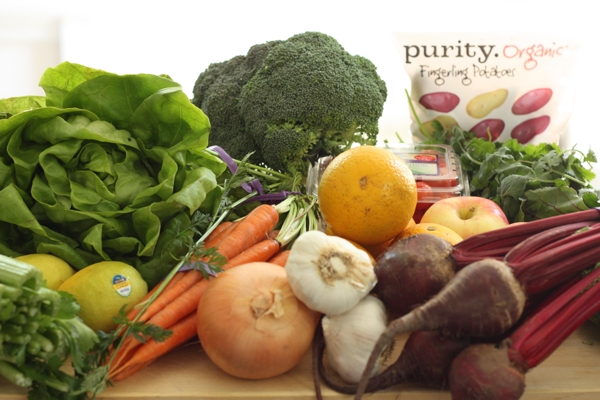You’ve heard the phrase ‘starving artist’—but you may not know what a role diet plays in our creative and artistic pursuits. We may think of food as fuel for our bodies, but it charges up our minds, too. Whole grains, fruits and vegetables and nuts have all been shown to assist with brain function.
In fact, studies have shown that foods high in antioxidants—like blueberries, plums, strawberries, walnuts, artichokes, kale and spinach—can help boost the brain’s natural cellular repair function and may improve memory. James Joseph, who leads the neuroscience lab at the Jean Mayer Human Nutrition Research Center on Aging, wrote in the study, “Weighing just 3 pounds, the brain accounts for only 2 percent of the body’s total mass, yet it uses up to half of the body’s total oxygen consumed during mental activity. Phytochemicals, together with essential nutrients in foods, provide a health-benefits cocktail of sorts.”
(Or you could get your antioxidants IN a cocktail, like this Blueberry Muddle.)
Other studies have shown the value of Omega-3 fatty acids in promoting our mental capacity and ability. And if you’re considering a fast-food chicken sandwich and side of fries for lunch, know this: Diets high in saturated and trans fats can negatively affect our cognitive ability.
Tips for feeding your brain and satisfying your body:
Don’t skip lunch. Even if you’re cruising on a creative project, be sure to fuel up mid-day. See Worth Eating below for links to a couple of wonderful make-ahead salads packed with brain-happy whole grains and veggies.
Snack smart. Take a quick break to eat a piece of fruit and a handful of healthy roasted almonds. My favorite pick-me-up afternoon snack is a sliced honeycrisp apple with 1 Tbsp. of natural peanut or almond butter.
Eat whole foods. As author Michael Pollan and nutrition advocate Marion Nestle advocate, avoid packaged foods that make health claims. Get your fiber from whole grains, your antioxidants from fruits and vegetables. Nutrients delivered in pills or supplements work in isolation and lose the benefit of being in their natural form and consumed in combination with other nutrients.
Drink more water. If you’re feeling sluggish or hungry, drink a glass of water before you reach for another cup of coffee. Fatigue is a sign of dehydration. Drinking water throughout the day helps nutrients circulate through your body, including to your brain.
See Worth Reading below for a link to more information on how diet impacts creativity.
“If you think of the brain as an engine, it’s going to run better on high-grade fuel. That’s what a brain-healthy diet provides.” — Paul E. Bendheim, neurologist
WORTH READING
The Diet, Exercise and Creativity Connection: Learn more about how what you eat affects what (and how) you think.
Best Brain Foods for Brain Function, Health and Memory: From WebMD, here’s a list of brain-boosting “superfoods” to stock at home and in the office.
Worth Eating
Lentil Salad with Chard and Tomatoes: This healthy salad is packed with protein, legumes and leafy greens, which can provide energy and nutrients to keep you going. Make a batch on the weekend and pack it for an easy workday lunch.
Delicious Cooking with Whole Grains: A roundup of wholesome grains (like quinoa and farro) that make terrific bases for hearty and healthy salads and side dishes.

I drink green veggie juices to keep energized!